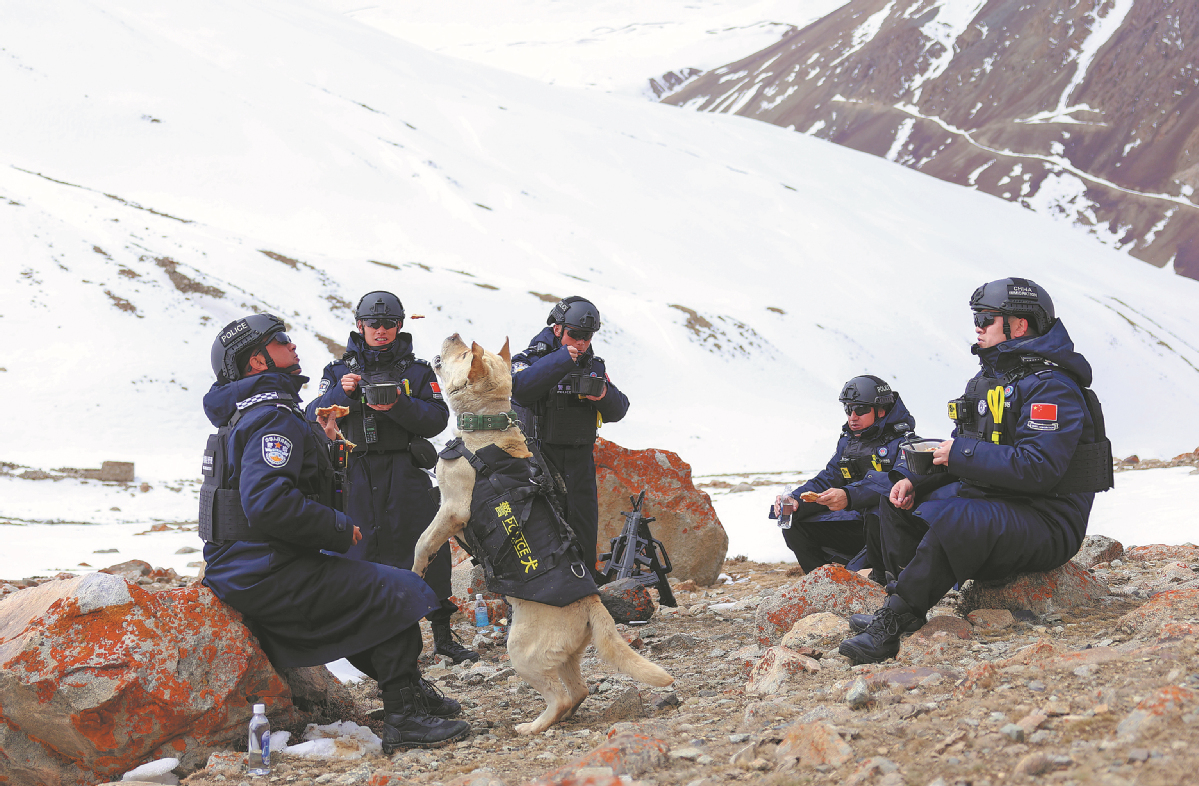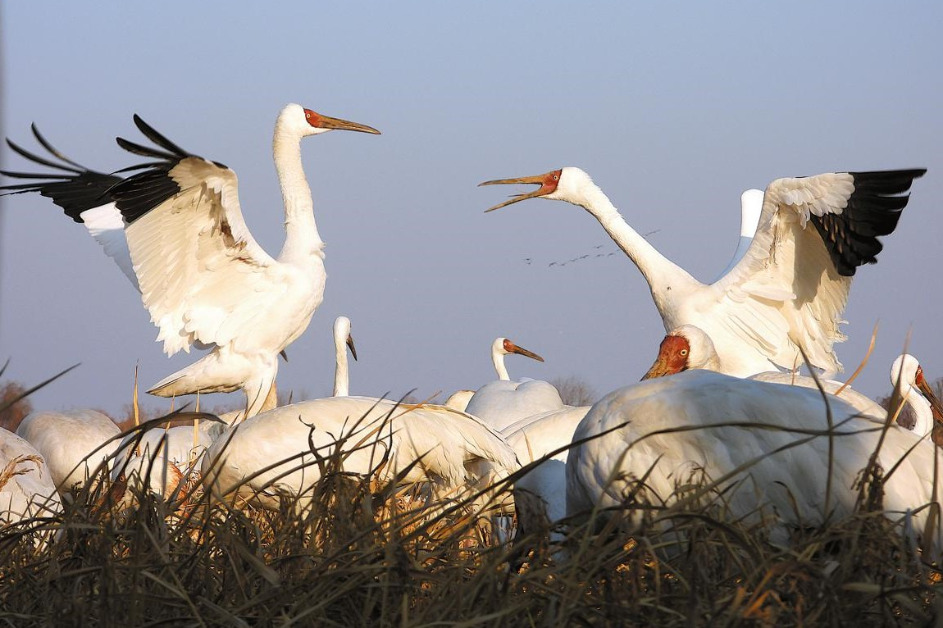High altitudes give policemen higher spirits
Officers stationed in the Pamirs take pride in protecting borders, aiding herders


As one drives toward the Paiyike Border Police Station, they can enjoy the majestic view of snowcapped mountains.
At the foot of the mountains is a vast land filled with sand, stones or sallow grass, where yaks are occasionally seen grazing. Puddles glittering in the sun in late March served as a reminder that winter was coming to an end.
Summertime starts in May in this part of the Pamirs, when local herders travel with their livestock to pastures inside the Wakhan Corridor, a narrow valley that stretches from Afghanistan to the Tashkurgan Tajik autonomous county in China's Xinjiang Uygur autonomous region.
The Chinese side of the corridor is about 100 kilometers long and is within the precinct of the police station, whose officers patrol the section every day.
During summer patrols, police officers visit the herders' settlements in the corridor. The officers talk to them to learn about what's happening in the valley, and bring them supplies such as groceries, nang flatbread and tea leaves to help them get through the monthslong stay there.
They also leave their contact information so the herders can call in times of need.
Murat Tursun, a 31-year-old officer who has worked in the police station for more than three years, said he is touched by the hospitality of the herders.
They often insist on inviting Murat and his colleagues inside their settlements to taste their best treats, including butter, yogurt and milk tea.
The officers' workload spikes in September and October, when herders begin to take their livestock out of the corridor as winter approaches.
"We receive a lot of calls for help from them during those two months," Murat said.
The reasons for their calls vary. Some request assistance when they get a flat tire but have no spare, when their vehicles get stuck in the snow or when they have lost their cattle. The police station responds promptly to the calls by dispatching officers to the scene, he said.
A typical job is to find missing yaks for those who leave dozens of the large animals to roam in the valley for the whole summer before collecting them ahead of winter.
The officers take videos of the yaks and the vehicles they are being transported in, Murat said, adding that by watching the videos, herders who lost their yaks can determine if their animals were taken by others accidentally.
If the herders are unable to identify the animals in the videos, the officers will take extra notice during the patrols and send messages to other herders for help.























